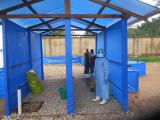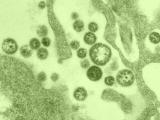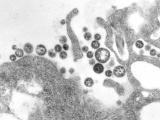In a deal worth up to $36 million to advance the development of a vaccine against Lassa fever, the Coalition for Epidemic Preparedness Innovations (CEPI) today announced a new partnership with Profectus BioSciences and Emergent BioSolutions.
Lassa fever is one the of the four diseases that CEPI, a group of government and funding groups that formed in 2017, has targeted for vaccine development. It estimates that Lassa virus causes about 100,000 to 300,000 infections each year. The virus is typically spread by rodents, though human transmission can occur through contact with the body fluids of an infected person.
Nigeria is in the midst of a large outbreak that's been underway since January, and in its latest update, the country's health ministry reported nine new cases in the latest reporting week, one of them from a newly affected area.
Vaccine collaboration details
According to terms of the agreement, Profectus will receive $4.3 million from CEPI to support the first phase of its Lassa vaccine project, with an option to invest up to a total of $36 million over 5 years, which could cover procuring vaccine for stockpiling, according to a statement from CEPI.
Profectus' candidate Lassa vaccine is based on its VesiculoVax vaccine delivery platform, which was initially supported by the US Department of Health and Human Services (HHS), the National Institutes of Health (NIH), and the National Institute of Allergy of Infectious Diseases (NIAID), with the basic research initially done at Yale.
Emergent will provide manufacturing and technical support, and through a separate agreement with Profectus has an exclusive option to license and control development of the vaccine.
The nonprofit group PATH will work on clinical development with the consortium under a separate agreement with CEPI.
CEPI said the award is the second for the collaboration, which follows its announcement in May of an effort to develop a Nipah virus vaccine.
Richard Hatchett, MD, chief executive officer of CEPI, said Nigeria is experiencing its largest ever Lassa outbreak. "Lassa fever continues to be a threat to public health in many parts of West Africa and has clearly demonstrated its potential to cause severe epidemics," he said, adding that CEPI's new investment adds another Lassa vaccine candidate to CEPI's growing portfolio and shows the group's commitment to addressing the disease.
In May, CEPI announced a partnership with the International AIDS Vaccine Initiative (IAVI) to support the first phase of Lassa vaccine development, and on Aug 2, IAVI announced that it has signed a licensing agreement with the Public Health Agency of Canada to develop a Lassa fever vaccine using the same platform PHAC used to produce the VSV-EBOV vaccine that has successfully been used to limit the spread of Ebola in recent African outbreaks.
Nigeria's hot spots in 3 states
In outbreak developments, the Nigeria Center for Disease Control (NCDC) said in its latest update (for the week ending Aug 5) that nine new confirmed cases were reported from three different states, including the first confirmed case from Enugu state since the outbreak began in January.
So far, 481 cases have been confirmed by lab tests, and 10 additional probable cases have been reported. Between the confirmed and probable cases, 133 deaths have been reported.
The infections have been reported from a wide part of Nigeria; 22 of the country's 36 states have recorded at least one confirmed case. However, the disease is currently considered active in only three of them: Edo, Ondo, and Enugu. According to the update, a rapid response team has been sent to Enugu state.
Over the course of the outbreak, 39 health workers were infected.
See also:
Aug 16 CEPI press release
Aug 3 CIDRAP News scan "IAVI, PHAC ink deal to develop Lassa vaccine using VSV-EBOV platform"
Aug 15 NCDC Lassa fever update




















